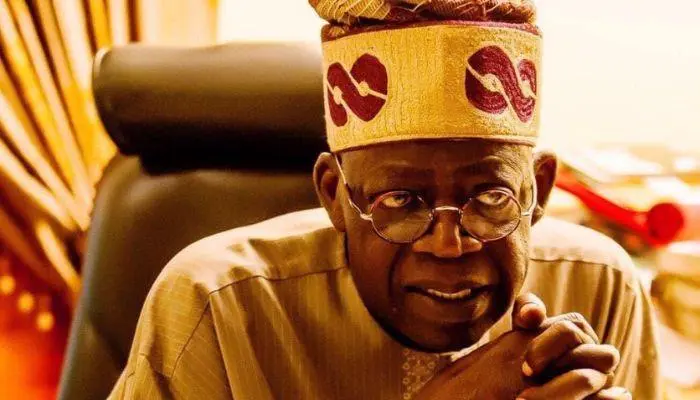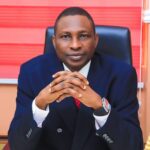As the Presidential Election Tribunal progresses, with its complex proceedings, the present situation is engulfed in a sense of dread, as if the weight of the nation’s future hangs precariously in the balance. However, amidst the prevailing unease, we must look beyond the courtroom drama and confront the harsh realities that lie beneath the surface. Our elders say the winds of change often blow with an air of uncertainty, leaving the masses with guesswork and expectations. In this context, one cannot help but ponder the selection of individuals with questionable pasts by President Tinubu—a choice that compels us to reflect upon the adage that those who lie with dogs wake up with lies.
In fairness, Tinubu has been speaking passionately about the fiscal challenges of the country, which pushed him to rush the removal of fuel subsidy. In the aftermath of his inauguration, President Tinubu addressed a gathering of APC governors, shedding light on the dire state of the country’s finances. His gloomy words revealed the depths of the fiscal challenges before the nation, which require a forensic investigation of the state coffers.
Particularly concerning was the revelation that Mrs Zainab Shamsuna Ahmed, who had overseen Nigeria’s debt profile rise to a record level with little to show, was now set to become a tsar at the World Bank, where she will promote Nigeria’s policies. The lack of transparency and accountability during her tenure had raised eyebrows, leaving the nation grappling with the disbursement of funds and the potential for discrepancies.
Astonishingly, President Tinubu seemed to be paying no heed to the new position of the former finance minister, where Nigeria owes over 14 billion US dollars. With her position, the prospect of holding her accountable for any possible mismanagement between Nigeria and multilateral institutions grew increasingly challenging.
Security: Tinubu should walk the talk
Insecurity: Rise up to occasion, PDP governors tell Tinubu
The confluence of these events leaves us shocked, prompting us to question the motives behind such a decision and emphasising the urgent need for a renewed commitment to transparency, accountability, and effective financial governance in our country.
But that’s not all. The fact that George Akume, accused of gross embezzlement as the Benue State governor, occupies a position as the Secretary to the Government of the Federation only adds to the concerns about the judgment exercised in selecting individuals for crucial roles. Tinubu’s position makes one guess how he meant to go on, which will disappoint many people.
This brings us to the reports on the ministerial list. The names on ‘the list’ show Tinubu is choosing to subsidise the retirement schemes of some dodgy politicians and technocrats. One would think Tinubu is against subsidising other people as he rushed to cancel fuel subsidy and unify the exchange rate system. No, the public guessed wrong. He will be counting on individuals like Ganduje, despite the alleged video of him receiving kickbacks in the form of dollars. He will be associating his administration with Andy Uba, despite the revelation of his indictment in the US and the UK for fraudulent activities. He will be subsidising El-Rufa’i retirement plan despite the fiscal mismanagement exemplified in Kaduna State, leaving a couple of billions in the state coffers while burdening the state with substantial debts in hundreds of billions of naira.
These instances collectively highlight the urgent need for leaders like Tinubu to carefully consider the character and track record of individuals they choose to bring into positions of power, ensuring that those with questionable pasts are not entrusted with governing the country. The future of Nigeria depends on leaders who embody integrity, transparency, and a commitment to the welfare of its citizens. There are serious concerns about the character and integrity of individuals associated with the political landscape. One of the pillars of good governance is the selection of individuals with unquestionable backgrounds to lead and govern a nation.
Of course, Tinubu is human and, like other past leaders, can make mistakes. However, people learn from their mistakes, especially when governing a country. One way to demonstrate to Nigerians that he has learnt from the unexplained behaviour that led to the forfeiture of $450,000 is not to repeat the same mistake of accidental association with people who have questionable characters. He must dissociate himself from alleged and convicted politicians. He cannot become their insurance commissioner and should not extend their retirement benefits by giving them executive appointments.
Let’s not forget the Presidential Elections Petition Tribunal still hangs in a delicate balance. The outcome remains uncertain, with the potential to go either way for President Tinubu. If the decision goes against him, losing his presidential seat, his time in office cannot be altered. However, what remains within our control is how the nation and future generations will remember his tenure.
It would be far more desirable for President Tinubu to be remembered for his remarkable achievements and unwavering determination to bring about positive change in the short term. Unfortunately, the association with politicians with dodgy records casts a shadow over this legacy.
To safeguard a positive and impactful memory, it becomes imperative for President Tinubu to distance himself from those whose reputations are tarnished and instead align himself with individuals who embody integrity and excellence. By doing so, he can ensure that his time as president is marked by achievements and noble intentions, devoid of any entanglement with politicians of questionable character.

 Join Daily Trust WhatsApp Community For Quick Access To News and Happenings Around You.
Join Daily Trust WhatsApp Community For Quick Access To News and Happenings Around You.

